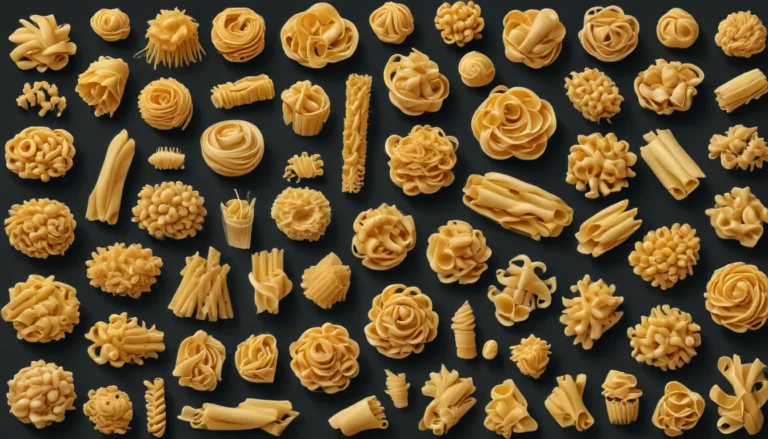The pictures in our articles might not always show exactly what the text is talking about. We use these images to make the article more interesting and eye-catching. They are there to add to the text, but not to replace it or show every detail.
Are you ready to embark on a journey to discover the hidden truths about added sugars lurking in our diets? In today's health-conscious world, understanding the impact of added sugars is more critical than ever. Join us as we unveil 17 fascinating facts that will empower you to make informed decisions about your health and well-being. From the basics of added sugars to practical tips for reducing intake, this article is your ultimate guide to navigating the sweet world of sugar with confidence.
Unveiling the World of Added Sugars
Let's start by unraveling the mystery behind added sugars. These sweeteners are not just a tasty addition to our foods and drinks; they can have a significant impact on our health. Unlike natural sugars found in fruits and milk, added sugars are extra calories with little to no nutritional value.
- Added sugars come in various forms, including table sugar, corn syrup, and high-fructose corn syrup. Manufacturers often add them to enhance flavor, color, texture, and shelf life of food products.
Understanding the Health Impacts of Added Sugars
Consuming too much added sugar can lead to various health issues, ranging from obesity to heart disease. It's crucial to be mindful of the amount of added sugars we consume daily to protect our health.
- The American Heart Association recommends limiting added sugar intake to no more than 100 calories a day for women and 150 calories a day for men. Excessive sugar consumption is linked to obesity, type 2 diabetes, and dental problems. Children and adolescents are particularly at risk due to high consumption rates of sugary drinks and snacks.
Navigating the World of Food Labels
Identifying added sugars can be a challenge, as they can hide under many different names on food labels. However, reading labels is essential for making informed dietary choices.
- There are over 60 different names for added sugars on food labels, including sucrose, glucose, and dextrose. In 2018, the FDA mandated clear labeling of natural and added sugars on food products, making it easier for consumers to understand what they are consuming.
Tips for Reducing Added Sugar Intake
Reducing added sugar intake can significantly improve your overall health and well-being. Here are some practical strategies to help you cut back on added sugars in your diet:
- Opt for water, unsweetened tea, or coffee instead of sugary drinks.
- Cook meals at home to control the ingredients and avoid unnecessary added sugars.
- Choose products labeled "no added sugars" or "unsweetened" when shopping for groceries.
Exploring the Link Between Added Sugars and Obesity
The rise in obesity rates around the world is closely tied to excessive added sugar consumption. Sugary foods and drinks contribute to weight gain by providing empty calories.
- Sugary beverages are the largest source of added sugars in the American diet and are strongly associated with weight gain and obesity. Limiting intake of these beverages and sugary snacks is crucial for maintaining a healthy weight.
Safeguarding Children’s Health from Added Sugars
Children are particularly vulnerable to the negative effects of added sugars, which can impact their health and development in various ways.
- Excessive sugar intake in children is linked to a higher risk of chronic diseases such as type 2 diabetes and high blood pressure. Encouraging children to eat whole fruits instead of fruit juices can help reduce their added sugar consumption.
Uncovering Hidden Sugars in “Healthy” Foods
Even foods marketed as "healthy" can contain high amounts of added sugars, deceiving consumers into making poor dietary choices.
- Flavored yogurts can contain as much sugar as a candy bar, despite being perceived as a nutritious option. "Whole grain" breakfast cereals can also be significant sources of added sugars.
Global Efforts to Curb Sugar Consumption
Countries worldwide are taking steps to reduce sugar consumption among their populations through various initiatives and regulations.
- Some governments have introduced taxes on sugary drinks to decrease sales of these beverages. Public health campaigns and clear labeling of added sugars on food products are becoming more common. Schools are limiting the availability of sugary snacks and drinks to students to promote healthier habits.
Embracing a Healthier Lifestyle with Less Added Sugars
By reducing your added sugar intake, you're taking a crucial step towards a healthier and more vibrant life. Armed with these 17 eye-opening facts, you now have the knowledge to make informed choices about what goes into your body. Remember, moderation is key, and enjoying a sweet treat now and then won't derail your health goals. Start reading labels, opt for natural sweeteners when possible, and savor the sweetness of life with fruits packed with fiber, vitamins, and minerals.
Conclusion
Join us on the journey to better health and well-being by making mindful choices about your sugar consumption. Let's toast to your health and vitality, embracing a life with less added sugars and more natural goodness. Cheers to a sweet journey towards better health!






